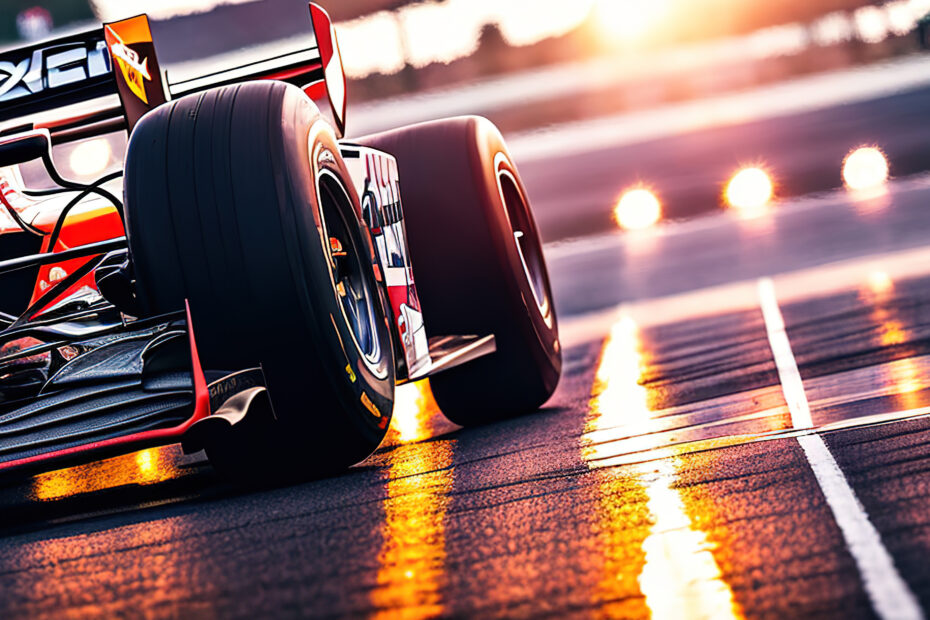As a tech-savvy entrepreneur with a passion for car racing, I find myself at the exciting crossroads of technology and motorsports. This blend of interests fuels my creativity and drive, providing unique insights into the transformative impact of technology on the sport. Regularly visiting racetracks and staying updated on tech innovations, I’ve witnessed how artificial intelligence (AI) is reshaping race strategy and performance, enhancing both the competition and the overall experience for fans and participants alike.
AI: The New Pit Crew
In the fast-paced world of motorsports, every millisecond counts. Teams are constantly seeking new ways to gain an edge over the competition, and AI has emerged as a game-changing tool. By analyzing vast amounts of data in real time, AI algorithms can predict race outcomes, optimize pit stop strategies, and even provide insights into driver performance.
Predictive Analytics
One of the most exciting applications of AI in motorsports is predictive analytics. AI algorithms can analyze historical race data, weather conditions, and real-time telemetry to forecast race outcomes. This allows teams to make informed decisions about tire changes, fuel strategies, and when to push the car to its limits.
For instance, McLaren Applied Technologies uses AI to develop predictive models that can anticipate race conditions and recommend optimal strategies. These models take into account countless variables, from track temperature to tire degradation, ensuring that teams have the best possible information at their disposal.
Enhancing Driver Performance
AI isn’t just helping teams strategize; it’s also enhancing driver performance. By analyzing data from practice sessions and races, AI can identify areas where drivers can improve. This includes everything from braking patterns to cornering techniques. With this information, drivers can fine-tune their skills and gain a competitive edge.
Real-Time Feedback
During a race, AI can provide real-time feedback to drivers. Advanced systems can monitor a driver’s performance and compare it to historical data, offering suggestions for improvement on the fly. This instant feedback loop allows drivers to make adjustments mid-race, potentially shaving valuable seconds off their lap times.
AI in Car Development
The benefits of AI extend beyond race day. Car manufacturers are increasingly using AI to design and test new vehicles. By simulating different conditions and scenarios, AI can help engineers identify potential issues before they become real problems. This not only speeds up the development process but also results in more reliable and high-performing cars.
Virtual Testing
AI-driven virtual testing environments allow teams to experiment with different setups and configurations without the need for physical prototypes. This reduces costs and accelerates the development cycle. For example, Formula 1 teams use AI-powered simulations to test aerodynamics, engine performance, and even driver ergonomics.
The Rise of Technology in Motorsports
The integration of AI is just one example of the broader trend of technology adoption in motorsports. Tracks around the world are embracing technology to enhance both the racing experience and their business processes. From smart infrastructure to advanced safety systems, technology is reshaping the sport in countless ways.
Smart Tracks
Many modern race tracks are becoming “smart tracks,” equipped with IoT (Internet of Things) devices that monitor track conditions, weather, and even crowd movements. This data is then analyzed in real time to optimize everything from race scheduling to spectator safety. For instance, Silverstone Circuit, home of the British Grand Prix, uses a network of sensors and cameras to monitor track conditions and ensure optimal safety for drivers and fans alike.
Enhanced Fan Engagement
Technology is also transforming how fans engage with the sport. Augmented reality (AR) and virtual reality (VR) are providing fans with immersive experiences, from virtual track tours to real-time race stats overlaid on their smartphones. AI-driven analytics are being used to tailor content and provide personalized experiences for fans, making each race day more interactive and enjoyable.
Conclusion
As someone who frequents racetracks and is deeply passionate about both technology and motorsports, I’ve witnessed firsthand the profound impact that AI and other technologies are having on the sport. The integration of AI into race strategy, driver performance, and car development is revolutionizing motorsports, making it more competitive, efficient, and exciting.
The future of motorsports lies at the intersection of high-speed racing and cutting-edge technology. As AI continues to evolve, its role in the sport will only grow, bringing new innovations and opportunities. For fans and participants alike, this means a thrilling journey ahead, driven by the relentless pursuit of excellence and the power of artificial intelligence.
Need help with tech initiatives for your motorsports organization? Explore how we can assist you here.
Interested in gaining deeper insights into our processes and expertise on related topics? Subscribe to our LinkedIn newsletter for more information. Subscribe on LinkedIn
